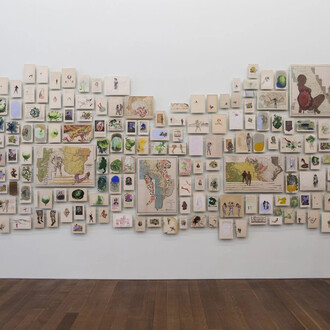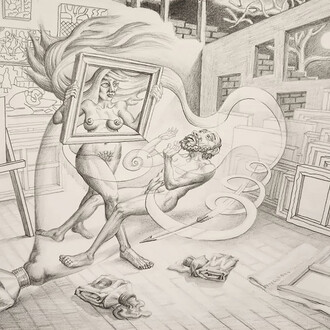Embark on an adventure through the sights and sounds of natural landscapes.
Follow the boardwalk to discover animal habitats from right here in the Midwest and across the Americas. At every turn, encounter a diorama scene of plant and animal life—and see if you can spot each critter, down to the smallest beetle!
From muskrats burrowing in the marsh to scarlet ibises stalking the tropical seashore, these taxidermy displays bring environments to life. The meticulously hand-crafted landscapes and diverse animal groups make Nature Walk an immersive habitat tour for all ages.
Grab your explorer’s hat and set off on a wildlife-watching expedition.
Exhibition Highlights:
- Sounds, touchable objects, and activities related to different environments.
- Carl Akeley’s large-scale Four Seasons diorama of white-tailed deer.
- Dioramas of wilderness parks across the Americas, from Canada to Brazil.
- Audio messages from park rangers on how to protect species.
A diorama masterpiece
Working as the Field’s Chief Taxidermist from 1896 to 1909, Carl Akeley experimented with new taxidermy techniques to make animals appear as lifelike as possible. His Four Seasons diorama shows white-tailed deer in their environments throughout spring, summer, fall, and winter. Considering every detail, Akeley and his wife Delia made 17,000 leaves for the scenery; no two are the same.
Messages from the wilderness
Animals, environments, and people are all connected. In Messages from the wilderness, experience what it’s like to visit national parks across South, Central, and North America. These diorama scenes depict species—from the common to the extinct—as they would appear in their natural habitats.
Wildlife tips and audio recordings from park rangers reveal the importance of protecting the places where animals live. Find out how every creature’s survival is connected to the lives of others, including our own.
Where did these animals come from? Scientists collected most of these specimens in the late 1800s and early 1900s, at a time when you couldn’t learn about wildlife on TV or online. Dioramas like these were the only ways that people could see Alaskan brown bears, bison, or capybaras. Today, they still offer a close-up look at animals and nature, even preserving snapshots of environments that no longer look the same.
















